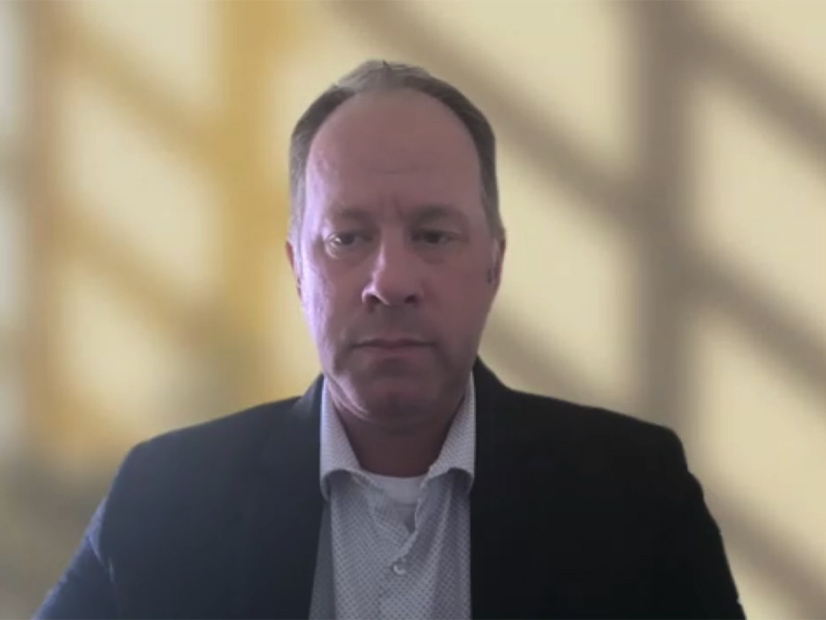Members of NERC’s Standards Committee again debated qualifications for standard drafting team participation at their monthly conference call Aug. 21, with the discussion extending the meeting more than a half-hour over its planned end time.
The committee was considering two proposals submitted by NERC staff to approve members of new standard drafting teams (SDT), along with a proposal to add supplemental members to an already existing team. The new teams were for Project 2024-01 (Rules of Procedure definitions alignment — generator owner and generator operator) and Project 2024-03 (Revisions to EOP-012-2), while the existing team to be augmented was for Project 2022-02 (Uniform modeling framework for inverter-based resources).
Project 2022-02 came first on the agenda. NERC Manager of Standards Development Jamie Calderon explained that NERC recently assigned the project a new standard authorization request (SAR) in response to FERC Order 901, which requires the ERO to submit standards concerning data sharing and model validation for inverter-based resources (IBRs) by November 2025. (See NERC Standards Committee Moves Forward on IBR Projects.)
Because of the scope of the new SAR, Calderon said, the existing SDT members wished to bring in new participants with “additional skill sets [such as] inclusion, performance data and other aspects of modeling.” Industry stakeholders nominated six new members, of which NERC staff recommended five for addition to the team.
The exclusion of the sixth member, who like other nominees was only identified by number during the meeting, sparked questions from Robert Blohm of Keen Resources. Reading off background information provided to committee members, Blohm noted that the candidate was not recommended because their organization “did not support the candidacy [because] it didn’t have the resources … to allocate his time.” Blohm asked if the nominee could still participate in the SDT “if he’s willing to volunteer his own time and put in the effort,” perhaps as an observer.
Committee Chair Todd Bennett, of Associated Electric Cooperative Inc., said that while “each committee member [could] decide on their own” whether they agreed with Blohm, he would look at the employer’s feedback as “a non-supportive recommendation” if he were not an officer and had the ability to vote. Steve Rueckert, director of standards at WECC, said he understood Blohm’s reasoning, but he expected that NERC would already have asked the candidate for their willingness to participate and factored that into their recommendation.
Following his feedback, Rueckert moved for the committee to accept the original slate of five suggested by NERC. The motion passed unanimously.
Next on the agenda was Project 2024-01, which is intended to “address the definitions for generator owners and generator operators within the NERC Glossary of Terms to ensure the inclusion of [IBRs]” that meet recently approved registration criteria. (See FERC Accepts NERC ROP Changes, Drops Assessment Proposal.) Members were asked to approve a chair, vice chair and eight additional members to the SDT for the project.
Rueckert noted that NERC had received 11 nominees for the team and asked why only 10 were recommended. Calderon replied that two of the nominees were members of the same “representative body” and NERC felt that if both were included, it would reduce the diversity of the team.
Blohm argued for including the 11th candidate, observing that “only two candidates among the 10 recommended … have drafting team experience.” He suggested that the candidate, who has previously served as an SDT chair, would add valuable perspective to the team. He moved to amend the proposal to allow all the nominees to serve.
Members largely supported Blohm’s motion, which passed with no objections. Maggy Powell of Amazon Web Services was the sole abstention, saying she was “not particularly comfortable” with the idea of adding people to the team that were not recommended because it “discounts … the work that NERC has done to … vet these participants and [their] qualifications.”
The final project voted on at the meeting was Project 2024-03, which is working on the most recent changes ordered by FERC to NERC’s cold weather standards. NERC recommended a chair, vice chair and 11 members from the 18 candidates nominated by industry stakeholders.
Blohm again warned that the nominees seemed to lack experience serving on SDTs. He observed that of two candidates from the same company, NERC staff had recommended one with no drafting team experience over another who had previously served on SDTs. He suggested switching the two candidates and also adding another two industry nominees, which he said would “make a team of 14, eight members of which — in other words, a majority … would have drafting team experience.”
Members were receptive to Blohm’s suggestion, though there was considerable disagreement about the best parliamentary approach to handling the amendments. Rueckert reiterated Powell’s objection to “discounting NERC’s work based on a short [biography] that we’re seeing presented to us.” He also reminded members that inexperienced candidates could only gain experience by serving on SDTs.
The committee eventually compromised on switching out the two candidates from the same organization, while adding just one of the non-recommended nominees, resulting in a team of 13 total.




